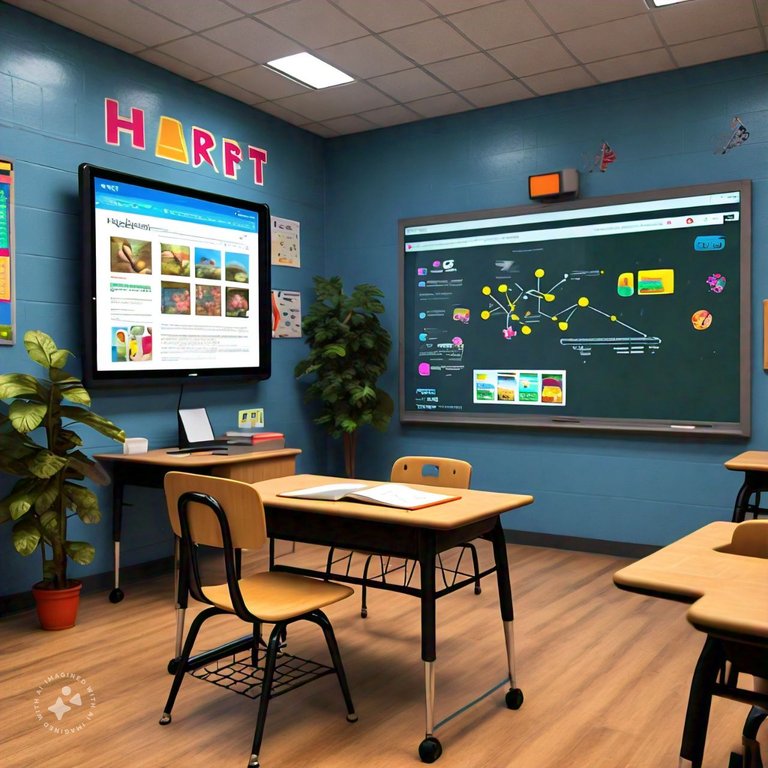
Image generated from Meta AI
Technological advancements over the years have been amazing, and it has been very visible in the educational sector. Life is no more about just working hard to get the required results but to work smart.
I came across two pictures yesterday that coincidentally explained this issue. In the first picture, two men were trying to force a bull to walk. One person was pushing it while the other was pulling with a rope. The bull refused to move. Their strength and hard work weren't enough to move the bull. In the second picture, it took only one person to work smartly and move the bull. The man sat on the bull, holding a long stick. He pointed the stick to the front, and it extended beyond the head of the bull. An edible grass was tied to the edge of the stick. The more the bull makes attempts to eat the grass, the more it changes its position and moves forward. Without any change, the bull will keep walking in attempts to catch up with the grass, but it will never happen. This is a practical example of working smart.
Bringing this topic to education and how the students handle academic journeys, I have a limit to which students are allowed to work smart. Being smart shouldn't compromise the aims and objectives of education or learning. The coming of the internet has made life easy in many ways. I can't imagine how life was when there was no internet. I wonder how they cope with research. With the help of the internet today, you can access thousands of research articles to help you conceptualize the way to go about your intended research. Imagine sourcing for hardcopy research papers in the era of no internet.
Many tools of learning are available via the Internet today. I have used YouTube videos to learn many things in the course of my journey as a student. The Internet has advanced to the stage that the knowledge available to be tapped into is huge. It can't be quantified. I see all these as ways of using the internet to work smart as a student.
However, when it comes to examinations, I don't support an open examination where the internet will be available for consultation by the students during the examination. The reason for maintaining this position is that it will affect the cognitive domain of education. We have three domains in education: cognitive, psychomotor, and affective. While cognitive deals with the ability to recall what was learned, psychomotor talks about the practical aspect of learning, and the affective domain is about emotional intelligence and the like.
Cognition is very important in learning. If education is made so simple to the extent of writing examinations with unrestricted access to the internet, it will affect the rate at which a student can hold an idea off hand or off the internet. Critical thinking and guided decision-making would be greatly affected. Imagine a student without the adequate grasping of some mathematical equations; it will be very hard to cope with the application of such equations in solving real-life problems. The option of relying on the Internet before thinking critically to make a decision will be counterproductive.
It is in this regard that story writers are being discouraged from using AI to write their stories.
Whatever one's area of specialization is, a level of cognition is needed to do well in such an area. Working smart is necessary, but it shouldn't get to the stage of unfettered access to the internet during examinations.